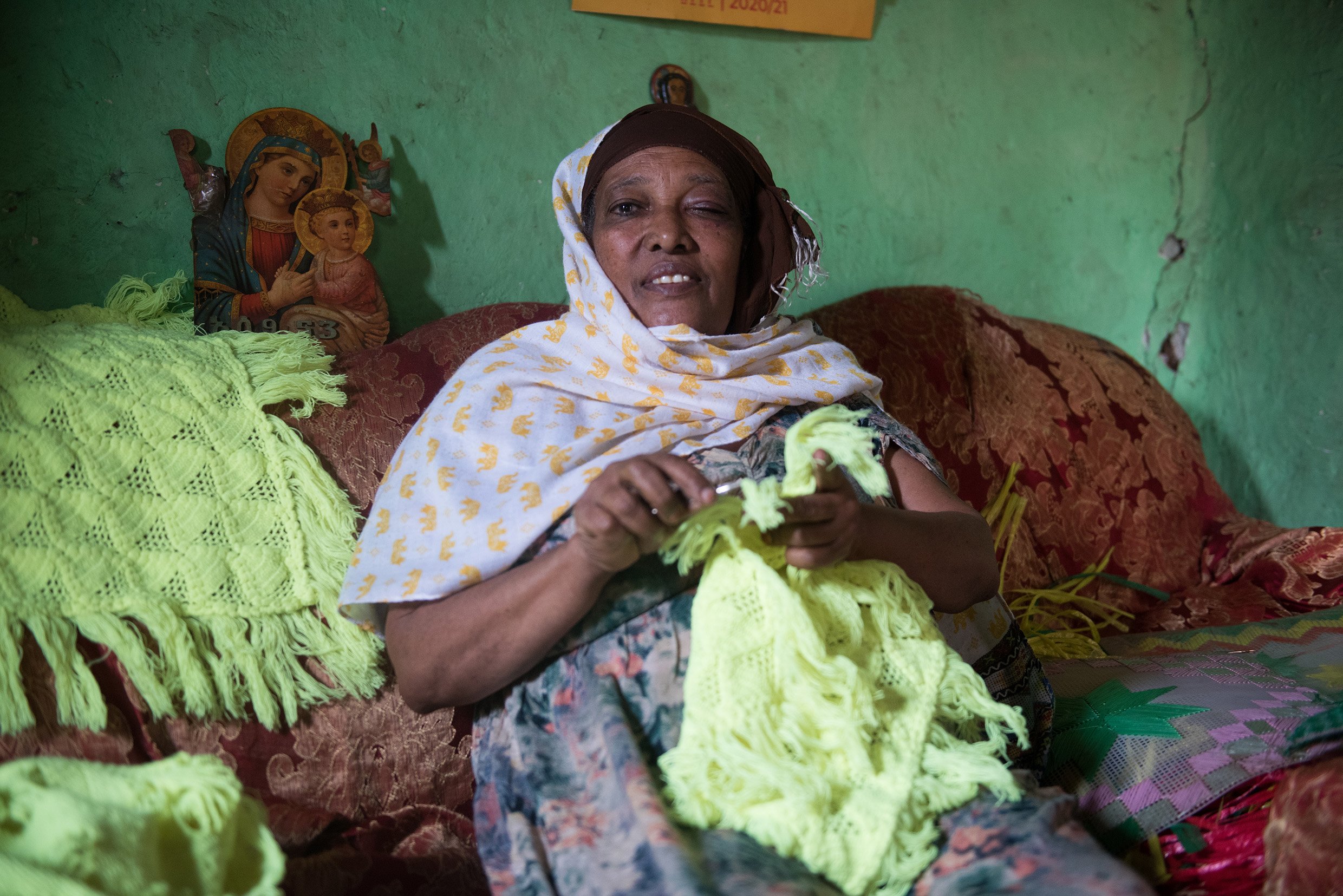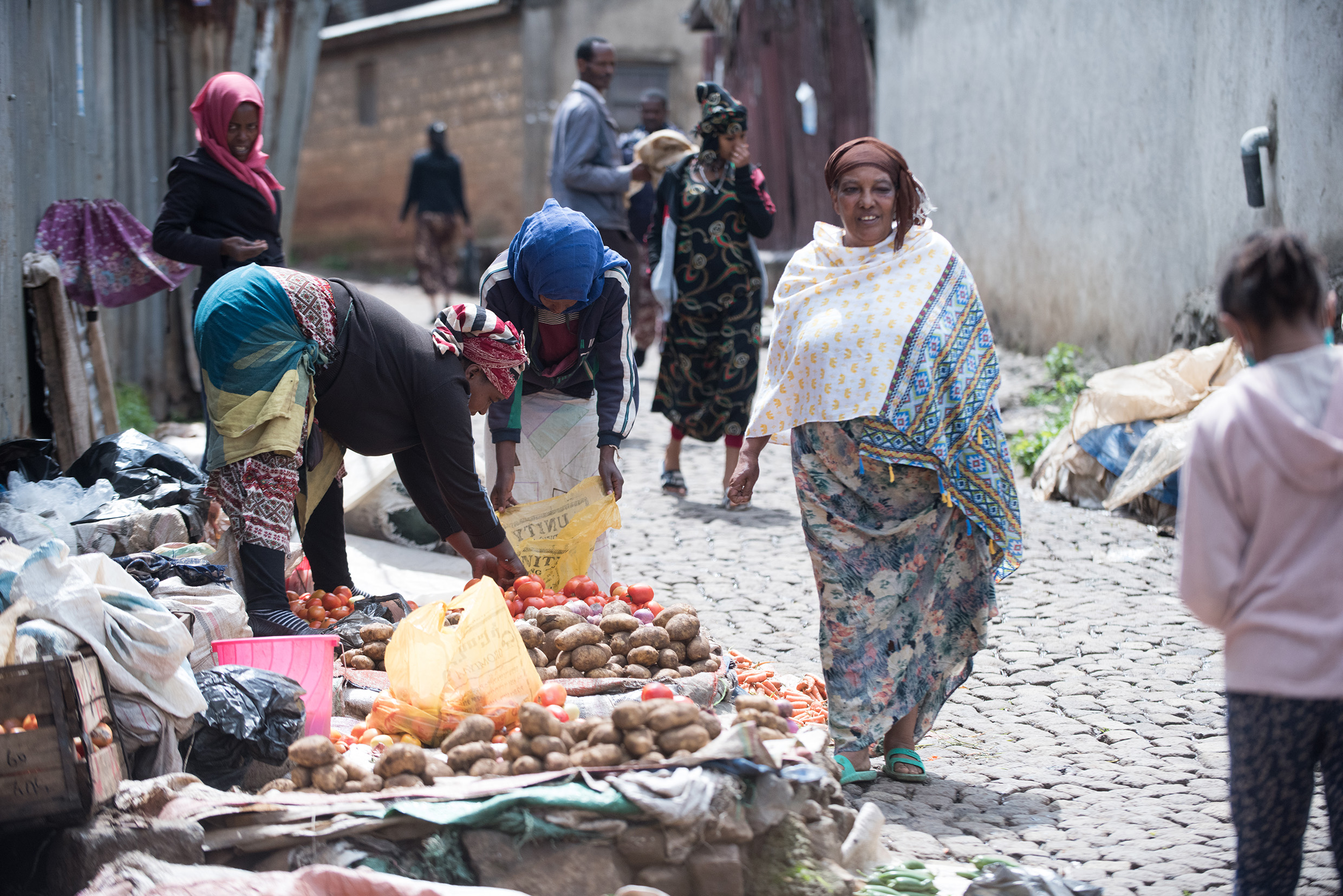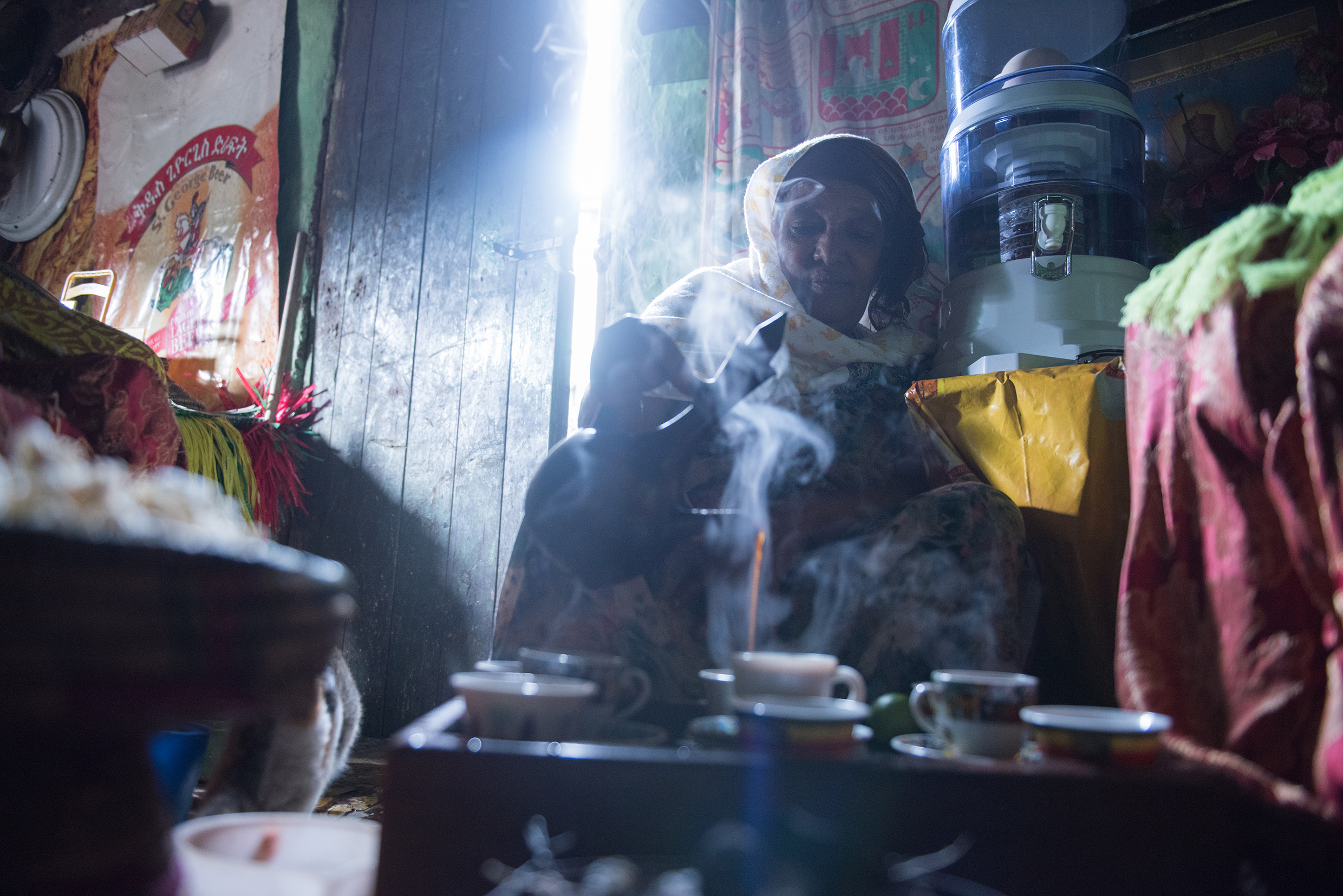
I work and support my family and community
Almaz may be retired, but that doesn’t mean she’s idle. As well as running her household, selling home-baked food and local goods, she also gives her time to care for other older people – in spite of the social stigma against being a working woman.

Almaz is 62 and lives in Ethiopia with her husband and daughter. She was forced into retirement from her place of work when she was 45 but was able to join the Tesfa Social and Development Association (TSDA), who provided her with the income to start a home business, selling home-baked injera bread and re-selling local alcohol, vegetables and crafts and other consumer goods.
Almaz receives a pension from her previous employer and has received credit from TSDA towards running her small business. Her income goes towards supporting her household, providing basics such as food, healthcare, house rent and clothes.
The unpaid work Almaz does at home is considerable. She wakes up at 6am to prepare breakfast, make beds and clean the home – before washing clothes, preparing lunch and dinner and baking injera to sell – which all take energy which she feels she is losing, although her daughter does assist her with the daily routine and making goods to sell. Since COVID-19, Almaz feels that keeping her home hygienic and sanitised is especially important.
As well as managing her own business, Almaz provides voluntary care for older people in their homes. She is on the local Development and Security Committee and is proud to support about 20 local older and vulnerable people as a home-based care provider. She feels this work enhances her connection with her community, and that they appreciate her efforts – she also feels it’s appropriate for older women to do this work for their community. She said: “Provision of voluntary services to community members, mainly to the older people, is my biggest success.”

Their household struggles to cover their families’ basic needs financially with the limited income they earn. Ever-increasing living costs and rent prices exacerbate this further, as has the COVID-19 pandemic. She feels economic stability and decreased inflation would help her to generate more income and profit for her business.
“It makes me worry for my business, especially during time of COVID-19 which complicated the situation. The price inflation affects us very much, especially whilst I am becoming physically weak from time to time.”
She feels that the work of older women is equally important to older men, younger women and other community groups, but she feels the burden of caring is falling disproportionally on older women. There can also be a social stigma to women of Almaz’s age doing paid work whilst taking care of the household;
“There are some community members who say I am running after money and benefits…why not stay at home or go to church to pray like other older women.”
Others encourage Almaz and are kind about her contributions, making her feel proud. She says:
“I feel, they properly describe me. For those who negatively describe me, I do not listen to them, since I believe in what, I am doing. I am always thinking positively for others and contribute to social works.”

Like many other older women in her circumstances, Almaz wants the local economy to stabilise after the pandemic.
“I hope tomorrow will be better than today, that older people will get attention from the government and community members and will get a sustainable income.”
Almaz has adapted her business since the pandemic and her livelihood has recovered, but the restriction of movement is still reducing the time she can spend with the older people she cares for, who often suffer from loneliness. But she feels the pandemic boosted the culture of supporting each other and helping those who are affected most. Almaz really values her relationships with her community members and with the clients she supports.
“We older women can work and support our family, community members but we also need opportunities that are appropriate for our age.”
She hopes her contributions are taken into consideration, but also that older women receive the necessary support in terms of finance and services that will improve their living conditions. She believes that “older people who are unable to take care of themselves should get support services from the government and other actors.”



